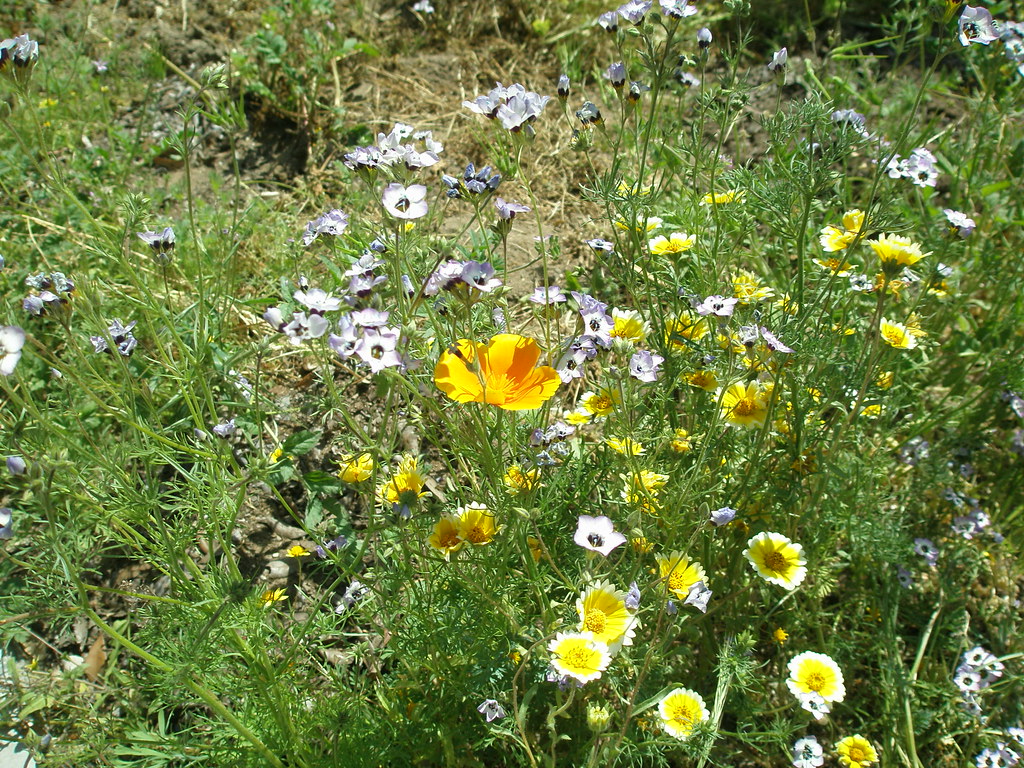The Ultimate Guide to Effective Weed Control in Flower Gardens: Proven Organic Techniques for Preventing and Eliminating Common Garden Weeds Without Harmful Chemicals
January 28, 2025|
To effectively control weeds in your flower garden without using harmful chemicals, start by understanding the types of weeds you’re dealing with, such as bindweed, daisy weeds, white clover, and creeping buttercups, which compete with your flowers for water, nutrients, and sunlight. Use organic techniques like mulching to block sunlight and retain moisture, hand weeding to remove entire root systems, and natural herbicides like horticultural vinegar. Lay down weed barriers such as landscape fabric, and guarantee dense planting to crowd out weeds. Clear existing weeds, avoid seed contamination, and consider solarization to kill weed seeds and roots. By implementing these methods, you’ll be better equipped to keep your garden thriving and weed-free, and there’s more to explore to help you master organic weed control.  The Ultimate Guide to Effective Weed Control in Flower Gardens: Proven Organic Techniques for Preventing and Eliminating Common Garden Weeds Without Harmful ChemicalsTo effectively control weeds in your flower garden without using harmful chemicals, you need to employ a combination of preventive and eliminative techniques. Start by removing existing weeds and their roots, and then lay down a weed barrier such as landscape fabric, cardboard, or newspaper to prevent new weeds from germinating. Additionally, maintain a thick layer of mulch, balance your soil nutrients, and plant densely to crowd out weeds and promote healthy plant growth. Introduction to Weed Control in Flower GardensWhen maintaining your flower garden, you will inevitably encounter common weeds like dandelions, crabgrass, and bindweed. These weeds can quickly outcompete your plants for water, nutrients, and sunlight. Understanding what these weeds look like and how they spread is vital for choosing the right organic control methods to keep your garden healthy and thriving. What Are Common Weeds in Flower Gardens?In the vibrant tapestry of your flower garden, unwanted intruders often emerge, disrupting the beauty and harmony you aim to maintain. Here are some common garden weeds to watch out for: Common Garden Weeds
Organic Weed Control TechniquesTo effectively control weeds in your flower garden using organic methods, start by preparing your soil properly to prevent weeds from taking hold. Apply a thick layer of mulch, such as chipped or shredded bark, to block sunlight and retain moisture, and make sure to weed the area thoroughly before laying down the mulch. Balance your soil nutrients to favor your desired plants over weeds, as balanced soils discourage weed growth. Plant densely and use polycultures to shade the soil, crowding out any potential weeds and promoting a healthier garden ecosystem. How to Use Organic Methods for Weed ControlEffective organic weed control in your flower garden starts with a few simple yet powerful techniques. To keep your garden weed-free, follow these steps:
Preventing Weeds in Flower GardensTo prevent weeds in your flower gardens, start by clearing the area of existing weeds and their roots, either by hand or with a hoe or cultivator. Next, lay down a weed barrier such as landscape fabric, cardboard, or newspaper to block weed seeds from germinating. Additionally, apply a thick layer of organic mulch, like shredded bark or straw, to block sunlight and regulate soil temperature and moisture, making it less conducive for weed growth. Effective Strategies for Preventing Weeds NaturallyPreventing weeds in your flower garden is an ongoing battle, but using organic methods can make it more manageable and environmentally friendly. To effectively prevent weeds, consider these strategies:
These methods enhance soil health, promote plant growth, and support pollinators while keeping weeds at bay. Common Garden Weeds and How to Control ThemWhen controlling common garden weeds like dandelions, crabgrass, and bindweed, you need to tailor your organic methods to the specific weed. For example, using mulch can effectively smother weeds like dandelions and bindweed by blocking light and preventing seed germination. Alternatively, techniques such as solarization or boiling water can be more targeted for weeds like crabgrass that thrive in open spaces. Targeting Specific Weeds with Organic MethodsEffective organic weed control in flower gardens involves tailoring your methods to the specific types of weeds you’re dealing with. Here are some targeted approaches:
|
|